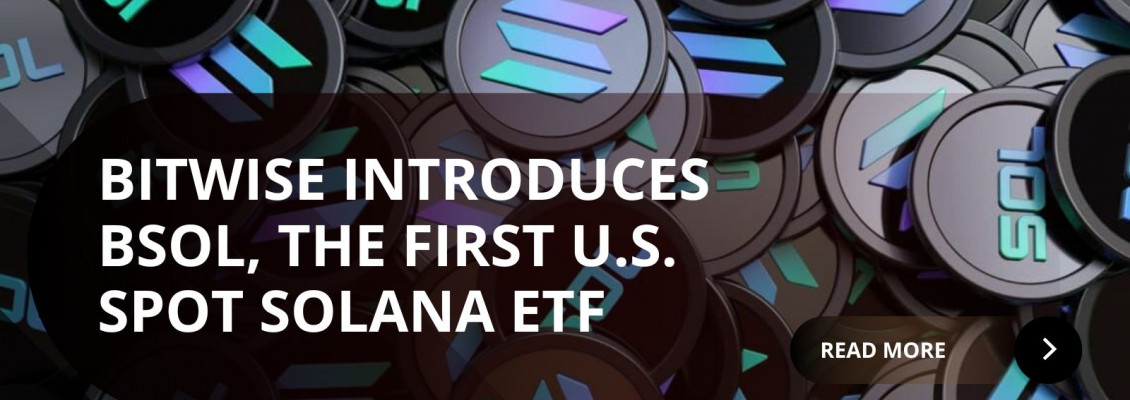
Bitwise Launches BSOL, Marking a Breakthrough for Solana and a Signal for the Next Era of Altcoin ETFs
Bitwise Asset Management has officially launched BSOL, the first U.S. exchange-traded product offering spot exposure to Solana (SOL). This milestone marks a defining moment for Solana and signals the beginning of a new chapter for altcoins entering the regulated investment landscape.
Solana Takes Center Stage
The BSOL launch cements Solana’s position as a major player in institutional crypto adoption. It is the first product in the U.S. to provide direct, fully backed exposure to Solana’s native token while staking 100 percent of holdings through Bitwise’s in-house infrastructure.
By leveraging Solana’s roughly 7 percent average staking yield, BSOL offers investors not only price exposure but also yield generation — all within a familiar, regulated ETF-style structure. This combination of accessibility, yield, and scalability positions Solana as the most advanced blockchain to reach institutional markets so far.
Solana’s growing ecosystem, low fees, and high-speed performance have made it one of the most active blockchains in the world. With BSOL now available to U.S. investors, Solana is moving from a crypto-native asset to a mainstream investment product — a shift that could have lasting effects on capital inflows and market perception.
The Start of the Altcoin ETF Era
While Solana leads the charge, the BSOL launch is a clear sign that altcoins with strong fundamentals are next in line. The success of Bitcoin and Ethereum ETFs proved investor appetite for digital assets, but Solana’s inclusion marks the next evolution — one defined by innovation, network utility, and yield.
Regulatory momentum and market demand are now aligning in favor of more diversified crypto exposure. As institutional frameworks become more comfortable with blockchain infrastructure, attention is shifting toward other high-performing networks.
Cardano, Avalanche, and Polygon are often mentioned among the top contenders for future ETF approval. Each represents a unique approach to scalability, interoperability, or governance, and together they illustrate the growing depth of the blockchain landscape.
The path forward suggests a broader expansion: Solana today, Cardano and others tomorrow. The foundation is being laid for a new generation of regulated altcoin investment products that reflect the diversity and maturity of modern blockchain ecosystems.
What This Means for Investors
For investors, BSOL offers more than just a new way to hold Solana. It represents a model for how future blockchain ETFs could be built — combining direct asset exposure, staking yield, and institutional security.
As more altcoin ETFs emerge, investors will be able to construct diversified portfolios across multiple ecosystems. This evolution could help reduce volatility, improve liquidity, and create structured opportunities for exposure to Web3 growth.
Institutional adoption is no longer theoretical. With BSOL trading on U.S. markets, it’s becoming a tangible part of investment strategy. If this trend continues, 2026 could be the year that altcoin ETFs become a standard feature of global financial markets.
Conclusion
Bitwise’s launch of BSOL is a turning point for Solana and the broader crypto industry. It validates Solana’s technology, rewards investors through staking yield, and brings blockchain innovation into the regulated financial world.
It also opens the door for what comes next. Altcoins like Cardano, Avalanche, and Polygon are gaining traction and could soon follow in Solana’s footsteps. Together, they represent the next wave of blockchain assets poised for institutional adoption.
Solana has proven that altcoins can succeed on the world’s biggest financial stage. The rest are not far behind.
Stay Connected
You can stay up to date on all News, Events, and Marketing of Rare Network, including Rare Evo: America’s Premier Blockchain Conference, happening July 28th-31st, 2026 at The ARIA Resort & Casino, by following our socials on X, LinkedIn, and YouTube.

Leave a Comment